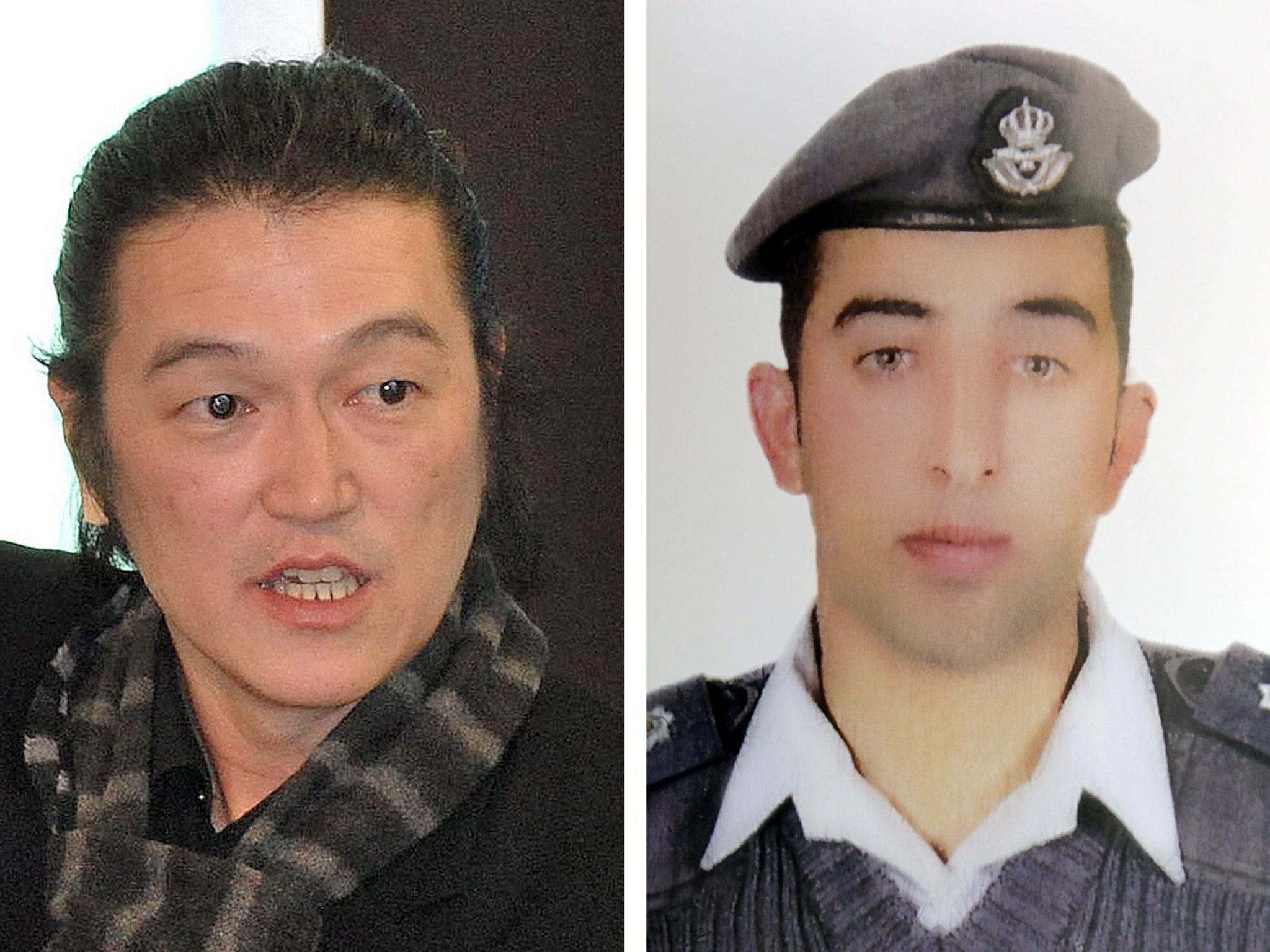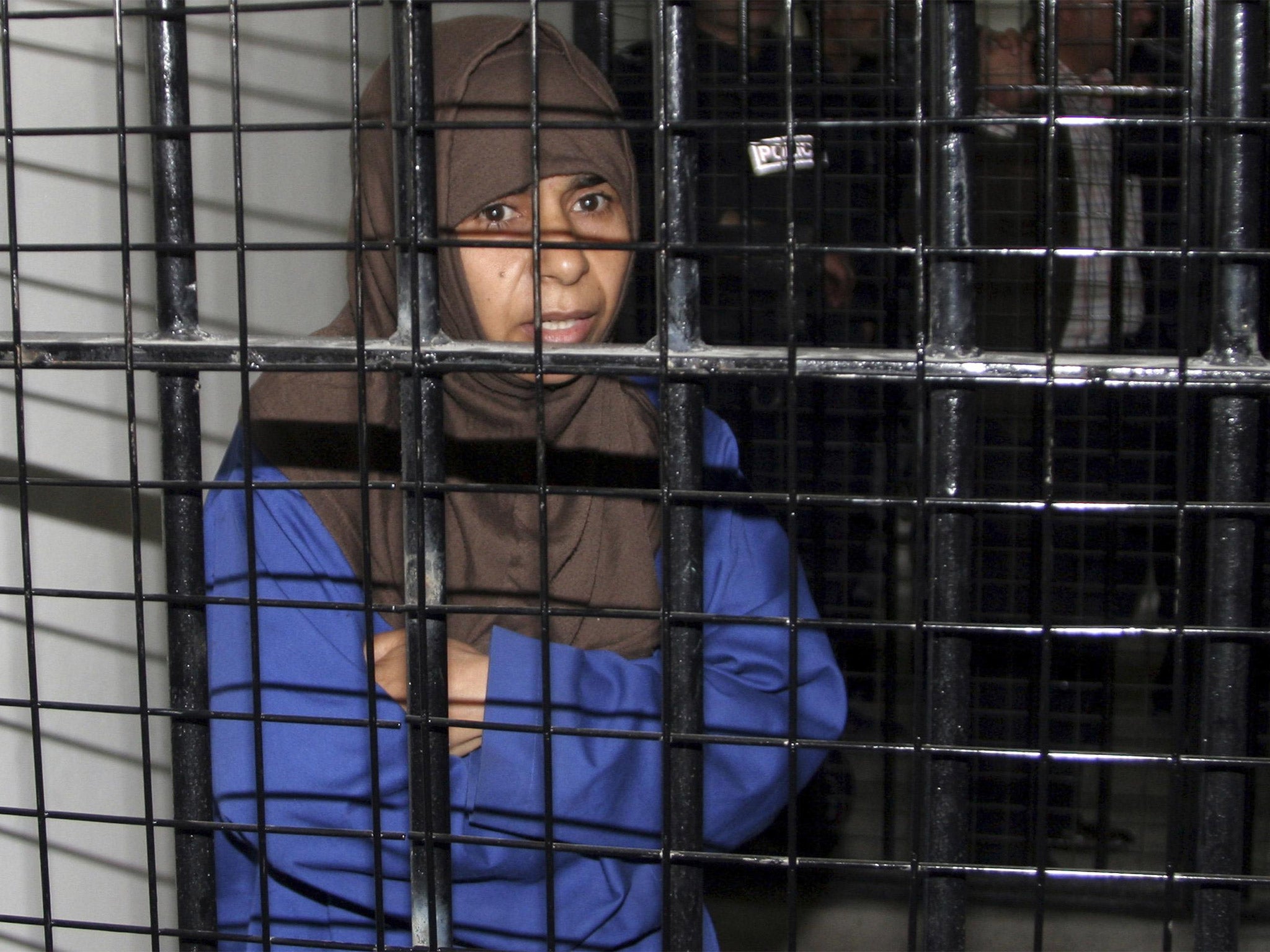Isis hostage crisis: The prisoner swap has only one purpose for the militants
The Jordanian pilot, the failed Iraqi suicide bomber and the Japanese journalist are all part of Isis's frontier re-drawing in the Middle East — whether they realise it or not


However tragic the ending, the weird and unprecedented prisoner swap – of a failed suicide bomber, an air force pilot and a journalist – has only one purpose for Isis: recognition that its Islamic State exists and that foreign nations acknowledge its power.
You only had to listen to the number of reporters talking in the last few hours about “the Islamic State” – without the usual “so-called”and “self-styled” in front of it – to realize that we are already, with scarcely a thought for the consequences, accepting the Caliphate as a viable, if illegitimate, nation. Forget the original demand for cash – Isis is funneling the stuff in from its friends in the Arab Gulf – because a Jordanian king and a Japanese deputy foreign minister are more valuable than a billion dollars. By agreeing to negotiate over hostages, in however confusing a fashion, they have given the Islamic Sate their own imprimatur. Last autumn, the State introduced its own currency. Now the State talks to other sovereign nations, albeit through intermediaries. Soon, no doubt, we can expect Isis to have that other necessary accoutrement of modern statehood: an airline. Then it only has to wait for the West to identify the ‘moderates’ in the Islamic State - and I suppose we’ll all be able to go and chat to Caliph al-Baghdadi himself.
Of course, there’s a Jordanian side to all this. King Abdullah’s Sunni Muslim subjects have never been very enthusiastic about signing up to the West’s war on the Sunni Muslim Islamic State, and many Jordanians – especially the Palestinian majority of the country - see no reason why Jordan’s military should be trying to destroy Isis’ occupation of parts of Syria and Iraq when another foreign occupation exists rather closer to Amman. When Muath al-Kasaesbeh’s own father appealed to the Islamic State to free his son – another gift of recognition to Isis – the King was in no position to turn him down. The King of Jordan’s duty to protect his people may be more robustly carried out than that of our own prime ministers and presidents towards their citizens, but it is real nonetheless.
Besides, almost every Western nation has made contact, however tenuously, with the Islamic State. The British, according to Arab officials who should know, have in the past sent messages to the lads in Raqqa through an Iraqi intermediary. The French, too. Saying that you “don’t do business with terrorists” or that you “don’t reward terrorists” is nonsense. Israel has uttered these words a thousand times yet, it has released literally thousands of prisoners in return for captured or dead Israeli soldiers – most recently in Lebanon and through its usual intermediary: the head of the German secret service.

But sovereign territory means a lot in politics; that’s why the ‘Islamic State’ wants to free a suicide bomber who was not only a member of its (supposed) enemy, al-Qaeda, and not only a failure – her husband blew himself up and killed 60 innocents when she did not do so – but a woman as well! Are we to believe, on top of this, that an institution that has slaughtered thousands of prisoners – Iraqi soldiers, Syrian soldiers, Shia Muslims and Christians and Yazidis and enslaved women – really cares about a single human life? But sovereign territory has a meaning for the Hezbollah as well.
Despite the dozens of newspaper and television reports on the rockets that killed two Israel soldiers on “the Israeli border” on Wednesday, this is untrue. The soldiers were attacked inside the border of Israeli-occupied Syrian Golan – or, if you believe the old French mandate maps, inside Lebanese territory which has been occupied since the 1973 Middle East war. Israel’s annexation of the Golan under Israeli law means nothing, since the world does not accept such annexation. So when the Hezbollah announced that the death of the two Israeli soldiers was retaliation for the Israelis’ drone attack on Hezbollah and Iranian forces in Syria 11 days ago, they specifically chose to take their revenge against Israeli military personnel who were not inside Israel itself.
Bookmark popover
Removed from bookmarks